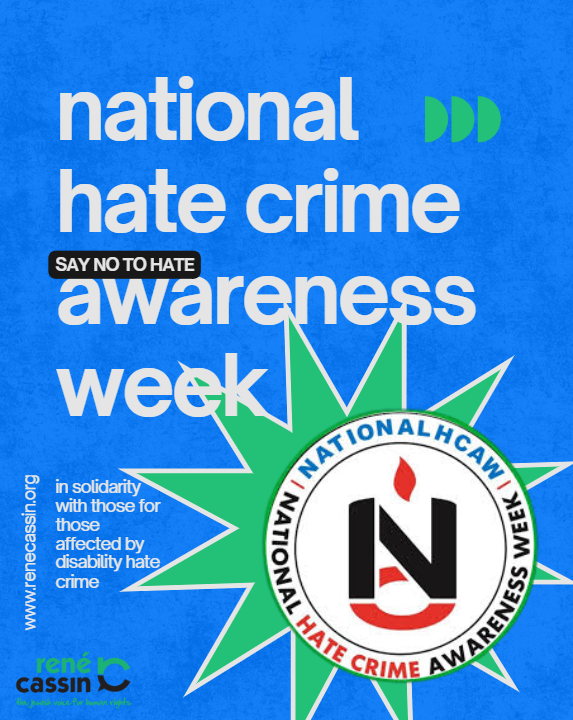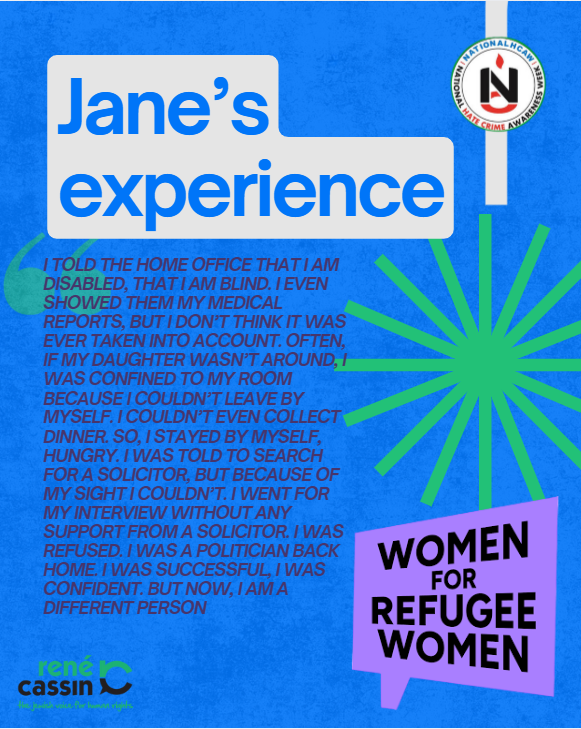As we mark Hate Crime Awareness Week 2025, with this year’s theme focusing on disability hate crime, we are reminded of the harsh realities of disability-based hate. For many, the story is more complex than a single form of discrimination. Refugees and asylum seekers living with disabilities face multiple, overlapping injustices, targeted not only for who they are, but also for how systems fail to recognise and respond to their circumstances. Too often, they remain unseen, unheard, and unprotected — left at the margins of public concern and policy response.

Refugees and asylum seekers
Refugees and asylum seekers living with disabilities face multiple layers of vulnerability. They are forced to leave their home country, endangered by their journeys, and too often met with hostility and inaccessibility upon arrival in the UK. These are not isolated incidents; they are symptoms of deeper, structural prejudice.
‘I told the Home Office that I am disabled, that I am blind. I even showed them my medical reports, but I didn’t think it was ever taken into account. Often, if my daughter wasn’t around, I was confined to my room because I couldn’t leave by myself. I couldn’t even collect dinner. So, I stayed by myself, hungry. I was told to search for a solicitor, but becuase of my sight, I couldn’t. I went for my interview without any support from a solicitor. I was refused. I was a politician back home. I was successful, I was confident. But now, I am a different person’.

Legacy
At René Cassin, we carry the legacy of a community that has witnessed the devastating consequences of unchecked hate. Under the Nazi regime, disabled people, including many Jews, were among the earliest victims of state violence, targeted under policies that devalued their lives and humanity. That history reminds us how easily prejudice can become policy when societies begin to measure people’s worth through narrow, dehumanising lenses.
Universal Declaration of Human Rights
Today, we see echoes of hate and discrimination in the treatment of disabled people, especially those who are also refugees and seeking asylum. When individuals are placed in inaccessible housing, denied essential medical care, or detained without support, it is not just a policy failure; it is a moral one.
Article 2 of the Universal Declaration of Human Rights affirms that ‘everyone is entitled to the rights and freedoms it sets forth, without distinction of any kind’. That includes people with disabilities, regardless of their immigration status. Anything less is a betrayal of those principles and of our shared humanity.
Our asks
We call on the UK government, civil society, and communities to:
- Acknowledge and address the compounded risks faced by disabled refugees and asylum seekers
- Ensure hate crime policies, services, and reporting mechanisms are inclusive and accessible
Hate does not begin with violence. It begins with words, with indifference, with bureaucracy. It begins when we allow some people to be seen as less deserving of dignity. We must not look away, because when dignity is denied to one, justice is endangered for all.
